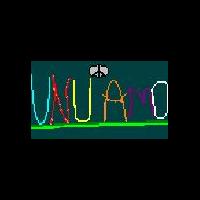Mesaĝoj: 23
Lingvo: English
Greyshades (Montri la profilon) 2010-januaro-20 14:52:53
From my experience, Esperanto does not permit the use of two prepositions next to each other.
Miland (Montri la profilon) 2010-januaro-20 15:11:35
Greyshades:Disde..Apart from Teach yourself Esperanto, disde is in Butler's dictionary as well as PIV 2005 (in both cases under the main heading de). It is used in PMEG (just after the second box).
Miland (Montri la profilon) 2010-januaro-20 15:19:23
ceigered:in your discussion with Frankouche where I am somewhat in the middle of both of your opinions..Both fare de and kontraŭ can be used instead of de to resolve the ambiguity in venko de, respectively in favour of the victors and the defeated. Thus we could say 1066 estas venko kontraŭ la anglioj kaj fare de la Normandianoj. My original example only covered fare de as applied to the Normans, but you could use both resolutions if the context did not seem sufficiently helpful. Teach yourself Esperanto was originally written for British readers who would have known about the event, and so la venko de Anglio would not have caused them difficulty. I wonder how many French speakers would actually wonder whether 1066 was a victory for the Anglo-Saxons or the Normans!
erinja (Montri la profilon) 2010-januaro-20 15:35:07
patrik:Is "elinter" a good idea as well?:I have never heard of a word "elinter". It is not necessary, actually. There is no need for a word such as "elinter" to make this meaning clear, because "el" already has the meaning you are looking for. The word "el" means something like "out of", and I even translated it as "from among" on occasion. So your sample sentence would be just fine as "Mi prenis vin el la plimulto" - Out of all of the people in the majority, I picked you out. That is perfectly clear to me. The "unclear" version would be using "de" in place of "el".
Mi prenis vin elinter la plimulto.
("I took you from among the majority.")
Disde is long-established and commonly used, however.
patrik (Montri la profilon) 2010-januaro-20 16:55:59
Greyshades:Disde = Desde? (Spanish)It does, since it's inherent to the structure of E-o. You can put two words together, as long as the created word makes sense. The late Don Harlow mentioned both "elinter" and "alen" [THE substitute for "en + -n"], but then, he acknowledges that these two are rarely used. "Alen" is worth using, I guess.
From my experience, Esperanto does not permit the use of two prepositions next to each other.
darkweasel (Montri la profilon) 2010-januaro-20 19:05:15
Doesn't Ido use something like alen (as one word)?
There's no rule that would forbid combining two prepositions, but somehow I don't feel the need for this - as I said above, these substitutes for a "place" preposition followed by the accusative are written as seperate words according to PMEG.
erinja (Montri la profilon) 2010-januaro-20 21:02:40
On the other hand, "en la lernejon" is perfectly correct, and means "into the school". That's also why "alen" isn't necessary, because we already use en + -n for this meaning (that is, for the equivalent of the English "into")
Frankouche (Montri la profilon) 2010-januaro-20 21:16:32
Miland:I wonder how many French speakers would actually wonder whether 1066 was a victory for the Anglo-Saxons or the Normans!I like so much "Normandie" that i was shocked by "la venko de Anglio"


Don't surestimate the knowledge of history by french, you would often be surprised, and certainly have good time


Vilinilo (Montri la profilon) 2010-januaro-20 21:49:26
Rogir (Montri la profilon) 2010-januaro-20 22:42:02
erinja:Um, I have never heard of a usage like "ĉe la lernejon", and I would say it's incorrect.We had a topic about that in the international forum a short while ago, and the conclusion was that it is not incorrect, but in most cases 'al la lernejo' would mean the same.





